Products
The Next-Generation of Health Surveillance
Continuous monitoring with proactive alerts is the only way to make safe, remote clinical decisions with enough reaction time to prevent clinical emergencies before they occur.
The REPHAEL includes the following products:
- Basic
- Premium as addition to the BASIC version
REPHAEL provides a broader range of clinical parameters than any other device, including cardiovascular, pulmonary, movement, temperature, and environmental metrics—all integrated into a single, synchronized system.
It empowers doctors and nurses to make informed and safe clinical decisions by analyzing multiple physiological parameters and their trends over time.
This ensures that no critical events are overlooked, while continuously monitoring all clinical parameters and generating proactive alerts for timely intervention.
Basic version service – Continuous ICU-grade wearable telemetry
The ICU-level wearable telemetry of REPHAEL delivers advanced, continuous monitoring of critical vital signs, ensuring comprehensive care across any setting—hospital, home, or on the go.
Key Features of the basic version service:
- Comprehensive Physiological Monitoring:
- Tracks essential parameters include 1-lead ECG, respiratory rate, cuffless blood pressure, body temperature, and movement.
- Designed to provide a clear and reliable clinical picture for managing patients with multiple health conditions.
- Advanced Data Collection with the PolyMonitor Device:
- A chest-worn, wearable device that continuously collects physiological data with high precision and transmits it securely to the cloud.
- Equipped with proprietary sensors to ensure ICU-grade accuracy and reliability.
- Seamless Integration with REPHAEL’s Web-Based Platform:
- Enables real-time access to vital sign data for healthcare providers.
- Supports informed clinical decisions remotely by offering continuous, high-quality monitoring data.
- Anywhere, Anytime Monitoring:
- Portable and designed for use in homes, hospitals, or during care transitions.
- Delivers consistent and reliable monitoring without the need for a physical ICU setting.
Benefits:
- Continuous Care: Provides uninterrupted monitoring for patients requiring high-acuity observation.
- Comprehensive Insights: Offers healthcare teams a complete view of critical vital signs in real time.
- Scalability: Ideal for hospital-at-home programs and other decentralized care models.
- Cost Efficiency: A reusable device offering a low cost-per-use while maintaining high-quality care.
REPHAEL’s wearable telemetry brings the accuracy and breadth of ICU-level monitoring to all care environments, enhancing patient safety and supporting seamless healthcare delivery.

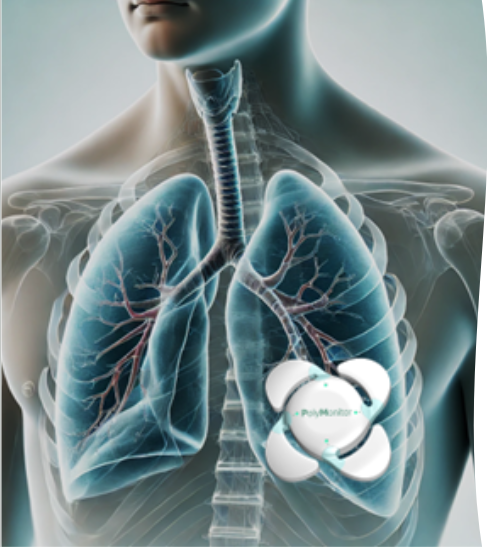
Early prediction of respiratory failure
- Chronic respiratory patients are some of the most expensive patients to treat.
- When a patient is admitted to hospital, hyperventilating and with low blood saturation that isn’t respiratory deterioration, it’s respiratory failure.
- It’s a costly, dangerous medical emergency.
- However…
- Early biomarkers of respiratory deterioration are identified by REPHAEL and used to predict respiratory deterioration often DAYS in advance! Administering medication and physiotherapy may stop the deterioration in its tracks, preventing respiratory failure altogether.
Impact of continuous sepsis screening
Sepsis is the #1 cause of death in hospitals.
Signs of this rapidly evolving infection are identified by the hospital nurse based upon once-per-shift vital sign measurements.
REPHAEL monitors trends in these vitals second-by-second proactively identifying the early trending signs of sepsis in time to react before a medical emergency and allowing ample response time even with home hospitalization.
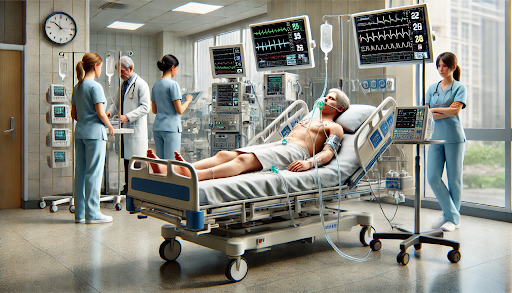
REPHAEL: Redefining Real-Time Cardiac Monitoring
Early Detection of Heart Functionality Issues
The REPHAEL system is an advanced real-time cardiac monitoring solution designed to provide continuous insights into heart activity. Utilizing a compact three-electrode setup, it delivers unmatched accuracy and functionality compared to traditional systems like Holter monitors and disposable wearables.
Comprehensive Multi-Lead ECG Monitoring
- 3-Lead Configuration: Two directly measured leads and one derived lead ensure a detailed view of heart rhythms and conduction pathways.
- Clinical Precision: Ideal for detecting arrhythmias such as atrial fibrillation, ventricular tachycardia, bradycardia, and premature contractions.
- Advanced Signal Interpretation
- Optimized electrode spacing (7 cm apart) minimizes interference and enhances signal clarity.
- Real-time detection of abnormalities, including ischemic changes, ST-segment variations, and heart rate variability (HRV).
- AI-Driven Analytics
- Continuous cloud-based data analysis with predictive algorithms for early detection of patient deterioration.
- Early warning alerts for healthcare providers, facilitating timely interventions.
- Portability and Flexibility
- Lightweight and wearable, suitable for hospital wards, outpatient care, and home environments.
- Unlimited recording duration for comprehensive monitoring over extended periods.
- Cost-Effective and Reusable
- Daily operational costs, with reimbursement opportunities through Medicare and Medicaid CPT codes.
- Daily operational costs, with reimbursement opportunities through Medicare and Medicaid CPT codes.
Advantages Over Traditional Systems
Feature | REPHAEL | Holter Monitors | Disposable Wearables |
ECG Leads | Multi-lead (2 direct, 1 derived) | Multi-lead, limited duration | Single-lead, limited data |
Monitoring Duration | Unlimited | 24–48 hours | Days to weeks |
Real-Time Monitoring | Yes (cloud-based) | No | Limited |
Predictive Analytics | Yes (AI-driven) | No | Minimal |
Portability | High | Low (bulky) | High |
Cost Efficiency | Reusable, low cost | Moderate (repeated usage) | High (single-use) |
Clinical Significance
- Early Arrhythmia Detection: Real-time data enables immediate alerts for arrhythmias and conduction issues.
- Broader Diagnostic Insights: Supports HRV analysis for assessing autonomic function and early ischemia detection.
- Improved Patient Outcomes: Reduces hospitalizations and emergency interventions through proactive care.
Why Choose REPHAEL?
REPHAEL bridges the gap between ICU-grade diagnostic accuracy and wearable portability. Its AI-driven insights, operational flexibility, and cost-effectiveness make it the ideal solution for real-time cardiac monitoring in diverse healthcare settings
Advanced Real-Time ECG Monitoring and Interpretation with REPHAEL
The REPHAEL system sets a new standard in cardiac monitoring, offering unparalleled advantages over traditional Holter ECG monitors, wearable patches, and single-lead devices. Its advanced ECG wave analysis and arrhythmia detection capabilities make it an essential tool for high-precision and continuous patient care.
________________________________________
Comprehensive Multi-Lead ECG Monitoring
Unlike single-lead devices, REPHAEL records data from three simultaneous leads, providing a comprehensive and accurate view of cardiac activity. This enables precise detection of a wide range of arrhythmias, including:
- Atrial Fibrillation (AF): Identification of irregular and rapid atrial activity.
- Ventricular Tachycardia (VT): Rapid detection of life-threatening ventricular arrhythmias.
- Bradycardia: Detection of abnormally slow heart rates.
- Extrasystoles (Premature Beats): Differentiating atrial and ventricular premature beats.
- AV Blocks: Accurate recognition of conduction blocks, including complete AV block.
________________________________________
Advanced ECG Wave Interpretation
REPHAEL delivers highly detailed ECG wave analysis by interpreting:
- P waves, QRS complexes, and T waves ensure precise abnormalities detection.
- ST-segment changes, which can indicate ischemia or evolving cardiac events.
- Subtle variations in wave morphology, offering early insights into critical conditions requiring immediate intervention.
________________________________________
AI-Powered Algorithms
REPHAEL leverages cutting-edge AI and machine learning technologies to process large volumes of physiological data in real time, providing:
- Accurate arrhythmia classification based on type and severity.
- Trend analysis to detect subtle changes over time that may go unnoticed in manual or periodic reviews.
________________________________________
Real-Time Alerts and Continuous Monitoring
With continuous, real-time data collection and cloud-based analysis, REPHAEL delivers immediate alerts to medical teams, ensuring rapid responses to potentially life-threatening events. This eliminates delays associated with traditional Holter monitors, where data interpretation occurs after recording is completed.
________________________________________
A Reliable, Long-Term Solution
REPHAEL is designed for uninterrupted use across various environments—hospital wards, outpatient care, and home monitoring. Its long-term usability and below $10 daily cost make it a cost-effective solution, especially when compared to disposable patches or prolonged Holter use.
________________________________________
Why Choose REPHAEL?
REPHAEL is the only wearable system that provides ICU-level insights anywhere. By combining comprehensive multi-lead ECG monitoring with advanced arrhythmia detection and real-time alerts, it empowers healthcare professionals to deliver superior care, improve patient outcomes, and prevent critical events before they escalate.
This innovative system redefines the standard for cardiac monitoring and brings the future of healthcare to your fingertips.
Early Warning of a Risk of Falls
Significance and Benefits of the REPHAEL System in Detecting Changes in Standing and Walking Stability in Elderly Patients and Identifying Excessive Movement Patterns in Hospitalized Patients
1. Clinical Significance and Benefits of Detecting Changes in Standing and Walking Stability in Elderly Patients:
Prevention of Falls: One of the most critical issues in elderly care is the risk of falls, which can lead to severe injuries, prolonged hospitalization, and a decrease in the quality of life. REPHAEL, with its advanced monitoring system, can detect early signs of instability in standing and walking patterns. By continuously monitoring gait and movement dynamics, the system can identify subtle changes in balance or the onset of instability before a fall occurs, giving healthcare providers the ability to intervene proactively. For elderly patients, especially those with mobility challenges or neurological conditions like Parkinson’s disease, REPHAEL’s ability to detect these changes can help in designing personalized care plans that reduce fall risks.
Continuous Monitoring and Real-Time Alerts: Unlike traditional fall detection systems, which often rely on manual alerts or occur after a fall has already happened, REPHAEL continuously monitors the patient’s movements, providing real-time feedback. This system’s ability to track a person’s stability in real-time offers an additional layer of protection, especially in nursing homes or home care environments where caregivers may not be present at all times. If any deviation from normal walking or standing patterns is detected, an alert is immediately triggered, allowing caregivers to assist the patient and prevent a fall.
Improvement in Mobility and Rehabilitation: For elderly patients undergoing rehabilitation or those with age-related mobility issues, REPHAEL’s system allows for the continuous monitoring of walking and standing patterns. By collecting data on how patients move over time, healthcare providers can assess the effectiveness of physical therapy and adjust rehabilitation programs accordingly. This also allows for better tracking of progress and more informed decisions about further treatment.
2. Significance and Benefits of Detecting Excessive Movement Patterns in Hospitalized Patients Attempting to Stand or Walk Without Assistance:
Early Detection of Risk Behaviors: In hospitals, especially in intensive care or post-surgical units, patients are often weak or disoriented and may attempt to get out of bed without assistance. Such behavior can be extremely risky, leading to falls, further injury, or delayed recovery. REPHAEL’s ability to detect and analyze movement patterns allows for the identification of excessive or uncoordinated movement—such as a patient trying to stand without assistance—before the patient is in a position to fall. This early detection is critical in preventing hospital-acquired injuries, which are a significant concern for healthcare facilities.
Real-Time Monitoring for Immediate Response: By monitoring movement in real-time, REPHAEL can alert medical staff to abnormal movement patterns that indicate a patient is trying to rise from bed or engage in risky activity. This allows hospital staff to respond quickly, ensuring that the patient receives help before attempting dangerous movements. This capability is particularly important in post-operative care or for patients with neurological conditions who may have impaired judgment or mobility.
Reducing the Incidence of “Code Blue” or Fall-Related Incidents: The proactive nature of REPHAEL in identifying these excessive movements or attempts to stand without help reduces the need for emergency responses, such as “Code Blue” calls, which are typically activated when a patient falls or shows signs of serious distress. By preventing these incidents before they happen, REPHAEL can improve patient safety, reduce the workload of healthcare professionals, and ultimately lower the occurrence of hospital falls, which are costly both in terms of patient outcomes and healthcare expenses.
Overall Benefits of REPHAEL in Elderly Care and Hospital Settings:
Proactive Fall Prevention: By continuously monitoring walking and standing stability, REPHAEL allows healthcare providers to intervene before a fall occurs, especially in high-risk elderly patients.
Enhanced Mobility and Rehabilitation: The system helps track improvements in movement for elderly patients undergoing rehabilitation, facilitating more personalized and effective treatment plans.
Real-Time Alerts for Hospitalized Patients: REPHAEL provides immediate alerts for excessive movement patterns or attempts to rise from bed without assistance, reducing the risk of falls and other injuries in hospitalized patients.
Data-Driven Decision-Making: Continuous data collection on a patient’s movement patterns provides healthcare professionals with valuable insights that can inform better care strategies and help reduce fall-related risks.
Cost Savings and Resource Optimization: By preventing falls and reducing hospital-acquired injuries, REPHAEL can help healthcare institutions save costs related to extended hospital stays, emergency responses, and post-injury care. The system’s ability to monitor multiple patients simultaneously also helps optimize staff resources.
Conclusion:
The ability of REPHAEL to monitor and detect changes in standing and walking stability in elderly patients and excessive movement patterns in hospitalized patients is a significant advancement in patient safety. It allows for real-time intervention before injuries occur, improving clinical outcomes and patient wellbeing. By providing continuous, non-invasive, and accurate monitoring, REPHAEL not only enhances mobility rehabilitation but also reduces the risk of falls, leading to safer hospital and home care environments. In both elderly care and hospital settings, this technology represents a crucial tool in proactive health management and injury prevention.
————————————————————-
Operational benefits
- Ergonomic fit, patent pending design
- Rechargeable multi-day operation with drop-in charging cradle
- Reusable = cost effective, just clean with alcohol and reuse
- Uses Off the shelf ECG electrodes, never run out, cost effective and chosen for patient skin type
- Remote control. The patient doesn’t configure the device or even needs to turn it on!
Financial benefits
- Service model – Actionable Data as a Service
- Costs scale with usage and income
- Pricing includes all hardware and software components
- Lowest cost of use per day
- Fully reimbursed in the US
Disclaimer: REPHAEL may currently be used for research and clinical trials only.
Use as a medical decision support system requires local regulatory clearance in your geography.
Turning the data collected into meaningful clinical insights through AI and early detection algorithms
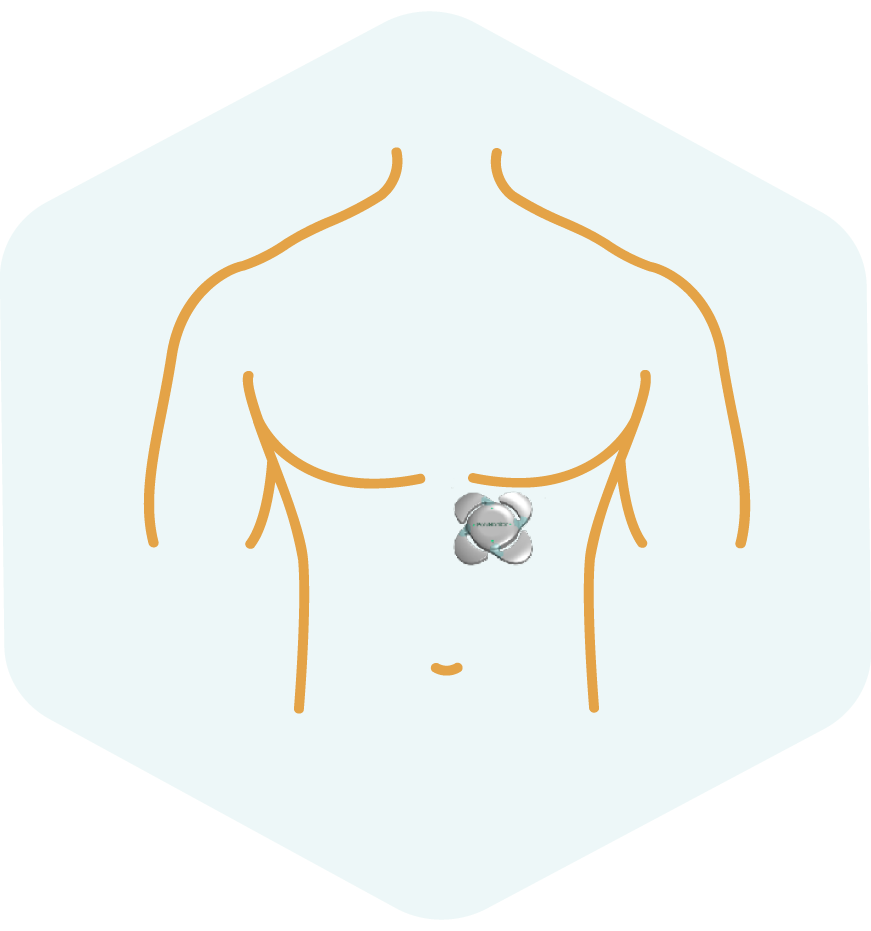
Personalized
Continuous
Remote
Monitoring
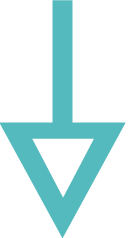
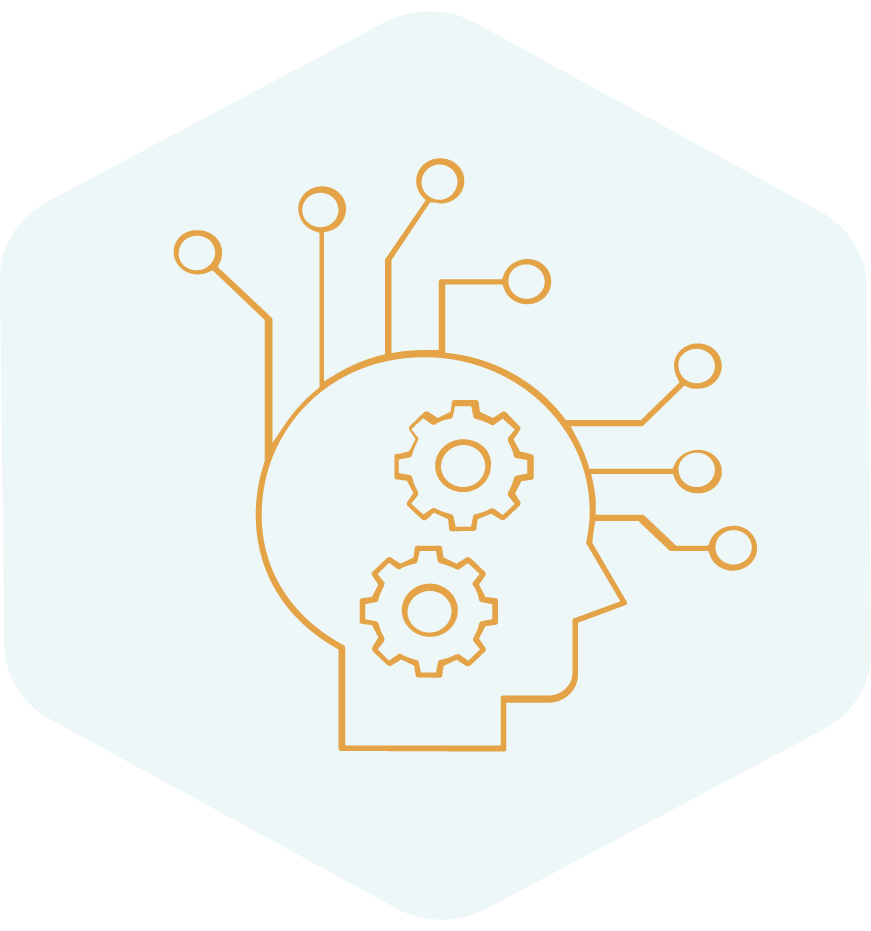
Machine
Learning
Analysis


Early
Detection/
Prediction

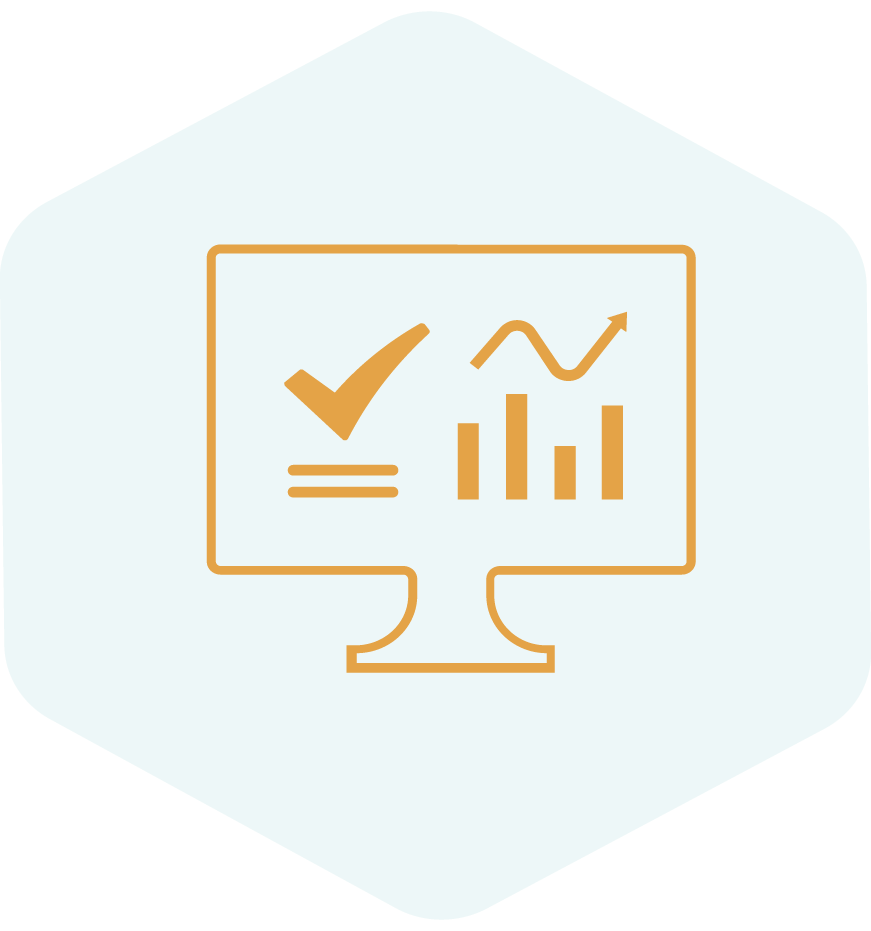
Clinical decision
support toolPrediction
Timely
prevention
intervention


Improved
Clinical
Outcomes &
Financial Results
RAPHAEL platform, comes-in, when
pro-active and preventive-care matters!







